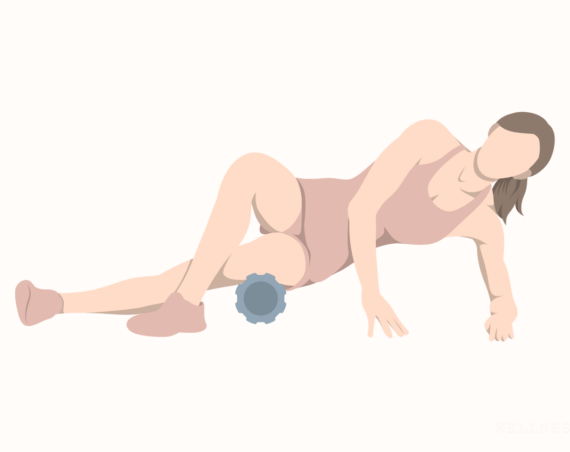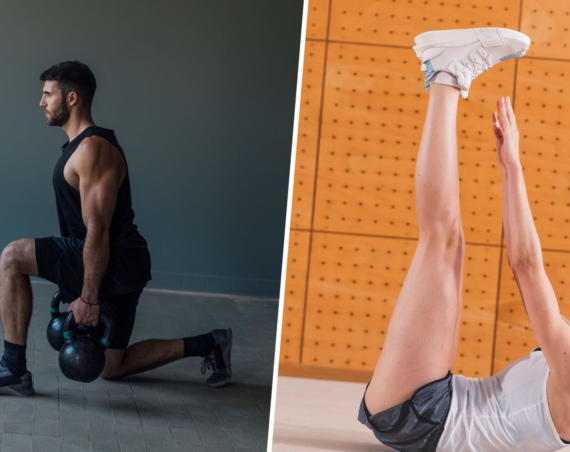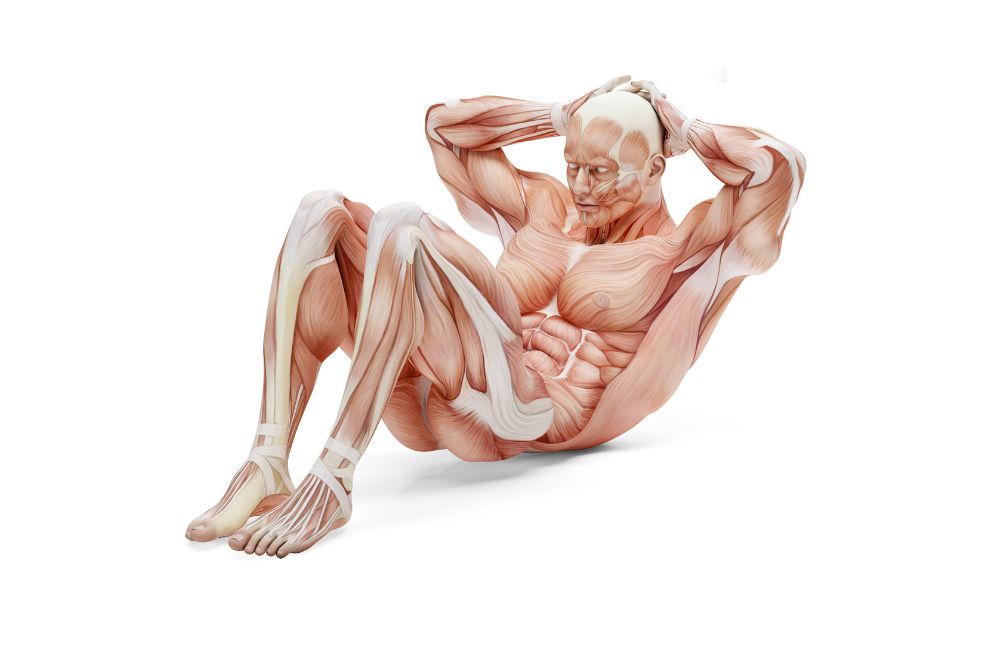
Building CORE strength and definition across your abs requires consistency and the right abdominal exercises. In this article, I’ll share the best abdominal exercises you need to do to get a strong and ripped core.
There are many aesthetic features that men strive for. For instance, some men want to achieve the classic “V” shape.
Others simply want to get as “big” as possible, packing on as much muscle as they can.
But one feature that the vast majority of men want to achieve is the perfect six-pack.
Unfortunately, there is a ton of misinformation out there about how to get defined abs (1).
In this article, I will outline some information about how you can get cut-up’s abs and provide you with some exercises you can use towards this end.
The Abs Explained
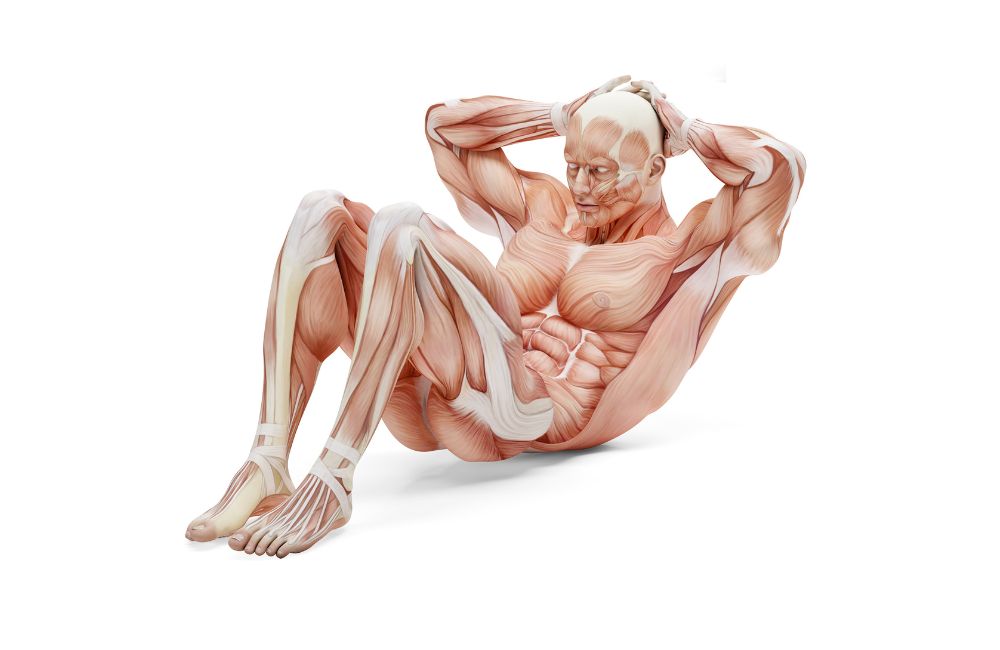
If I were to ask you: “What are the abs?” how would you respond?
Interestingly, most people would probably be completely thrown off by this question. Others may indicate that the classic six-pack muscle is what makes up the abs.
However, there is more to the abs than just the six-pack (2).
Broadly: the abs are made up of the rectus abdominis (the six-pack), the internal and external obliques, and the transversus abdominis. Of course, there are more muscles that can also be grouped with these four, but the aforementioned muscles must always be included in discussions of “the core”.
Getting a Six-Pack
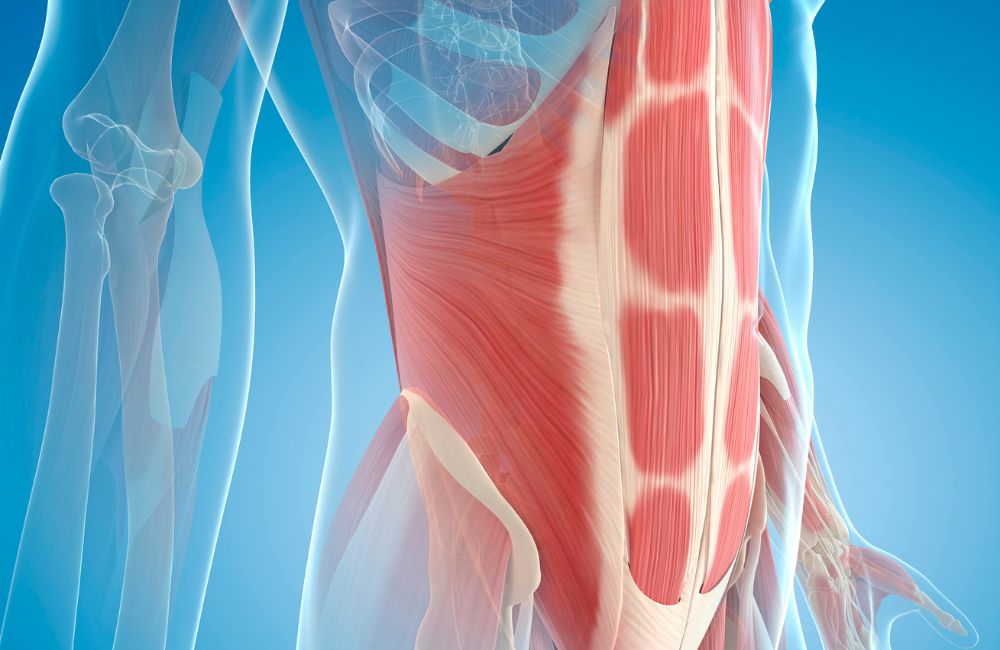
Perhaps the most frequently asked question with regards to fitness is “how can I get a visible six-pack?”
The answer to this question is unsatisfying for most people. Truthfully, the way to show off your abs is to get as lean as possible and get your abs as strong as possible.
For most people, this means losing weight through the creation of a caloric deficit (eating fewer calories than you expend) and performing targeted exercises to strengthen the abs.
However, you should be cautious if you’re embarking on this journey to get a six-pack. It will take a long time, and you may never actually achieve a six-pack like the celebrities you see on TV. Everyone has a different genetic potential and no two sets of abs will look exactly the same.
However, getting your abs as strong as possible with the following exercise routine really has no downside! It will help you improve your posture, overall strength, and many other areas of your life.
Let’s dive into a comprehensive ab routine for optimal results!
11 Best Ab Exercises Ever
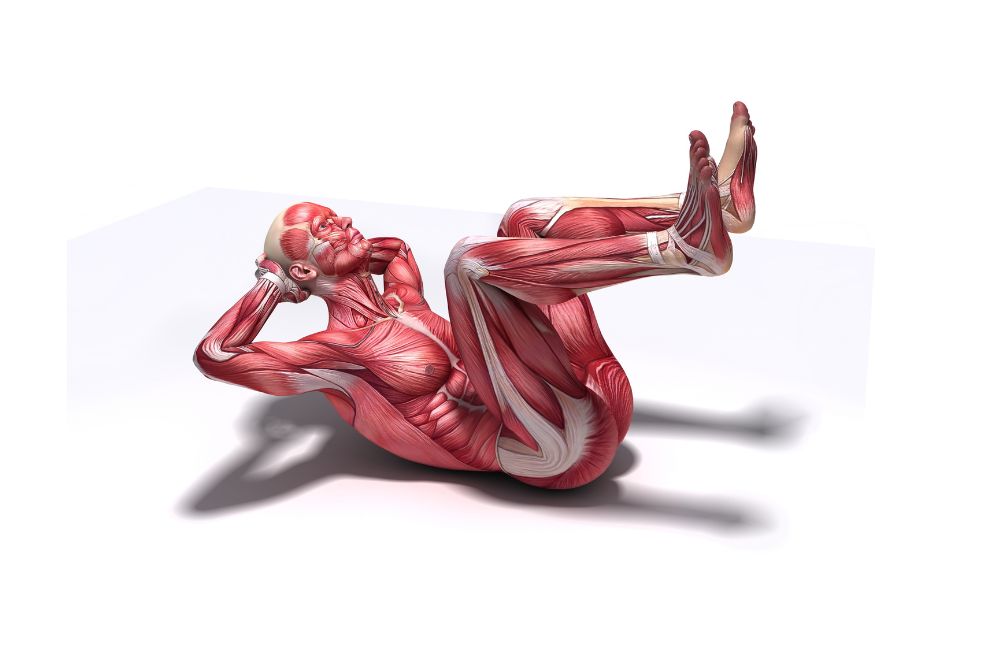
You should aim to complete the following routine 2-3 times per week. This will give your muscles plenty of time to recover. Working your abs too often will lead to suboptimal results and it may even cause injury.
If you don’t have the right equipment for any of the following exercises, fear not! You can make modifications to any exercise plan to fit your needs.
1. Toes to Bar
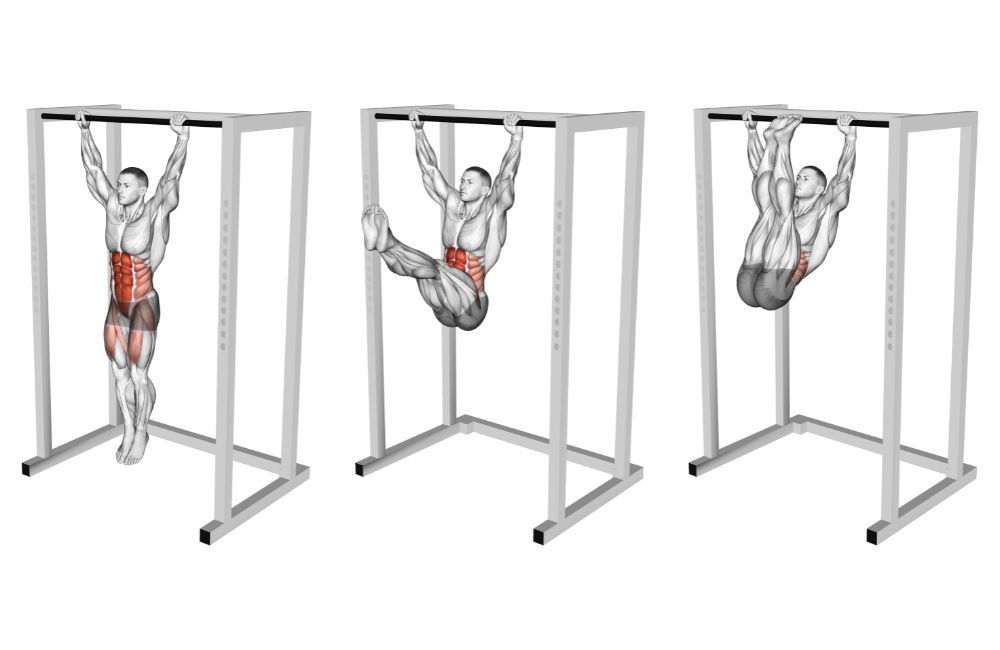
The toes-to-bar movement is a favorite of many CrossFitters. This exercise requires tons of core strength in addition to grip capability.
If you don’t have a pull-up bar, you can do this move lying on your back on the floor, performing the same motion.
How to Perform:
- Grasp the pull-up bar with an overhand grip (pronated).
- Slowly, bring your toes up toward the bar while keeping your legs as straight as possible.
- Then, gradually bring your legs back into the starting position, aiming to limit your sway as much as possible.
- Repeat for 3 sets of 10-12 reps.
2. Planks
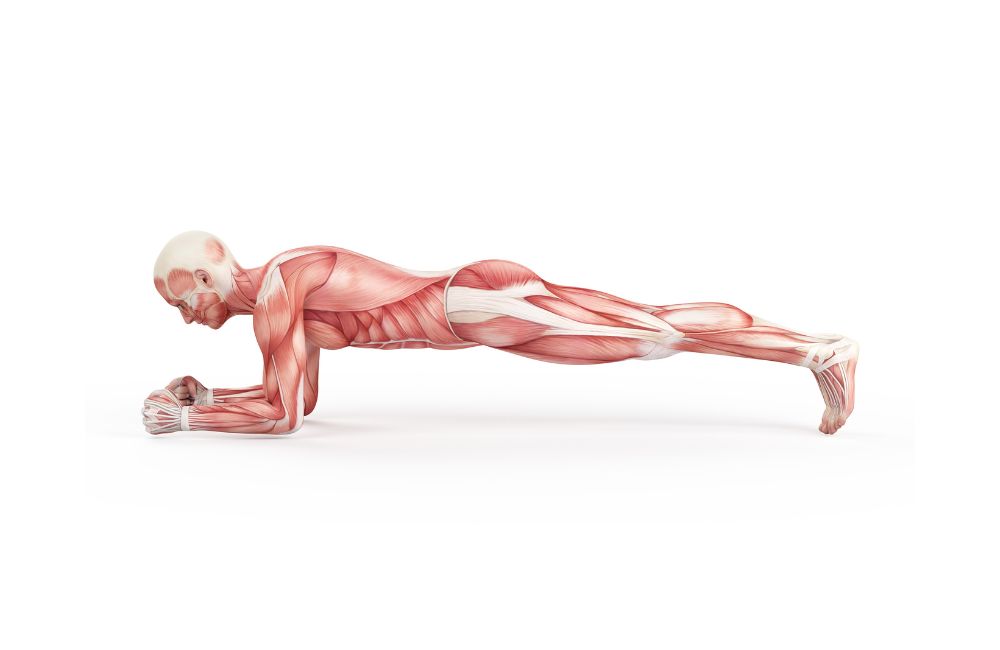
Planks are an isometric exercise. This means that your joints don’t change angles during the movement. Rather, you maintain the same position, keeping your muscles tensed the whole time. Isometric exercises, such as planks, are great for building muscle endurance and strength.
How to Perform:
- Place your forearms and toes on the floor, keeping your back flat.
- Tighten your abs and glutes as hard as you can.
- Hold this position for 3 sets of 30 seconds to 1 minute to start. As you get stronger, continue to increase your time spent in the plank.
3. Bird Dogs
This movement is extremely challenging for many people due to the unique balance demands inherent in the exercise. To properly perform the bird dog, you need to have strong stable muscles all throughout your core.
But if you don’t have much strength in this area yet, you’ll build it up quickly by simply working on your bird dogs regularly.
How to Perform:
- Start on your hands and knees, with your knees right below your hips and your hands right below your shoulders.
- Reach your right arm out in front of you as you simultaneously extend your left leg back behind you.
- Hold this position for three seconds, then return to the starting position and complete on the opposite side.
- Complete 3 sets of 10-12 repetitions per session.
4. Hollow Holds
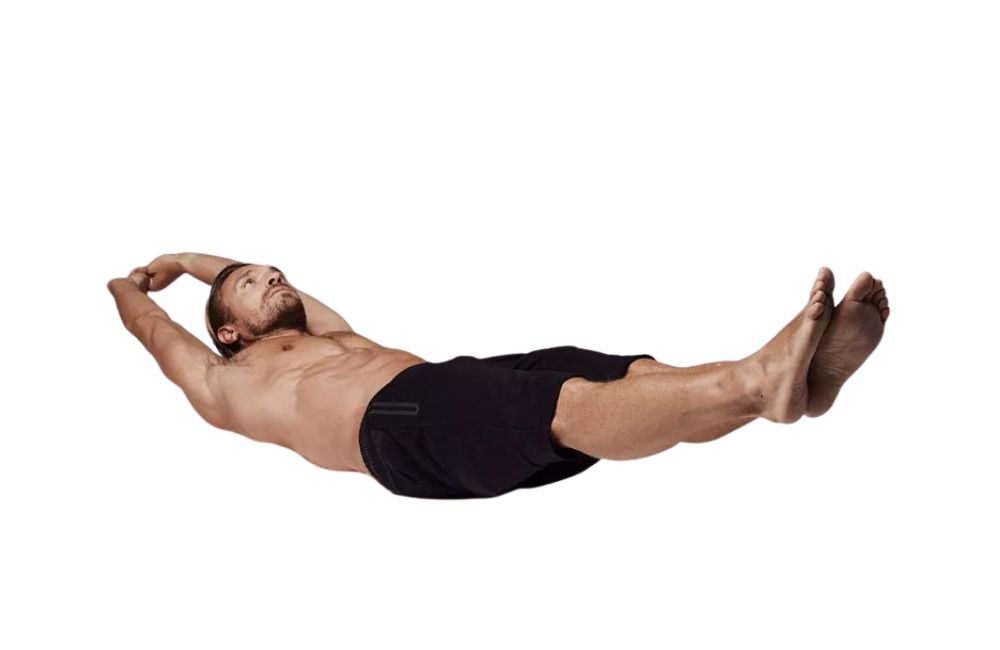
Much like planks, hollow holds are an isometric exercise. A slight variation of this move is also seen in yoga classes, but in that setting, it is known as the “boat pose”.
How to Perform:
- Lie flat on your back with your legs out straight and your arms extended all the way overhead.
- Next, lift your legs a few inches off of the ground as you simultaneously flex your trunk off of the floor.
- At this point, you should be in a slightly curved position, with your low back and hips on the ground and everything else held up.
- Hold this position for 10 seconds, rest for 10 seconds, and repeat 10 times per session.
5. Windshield Wipers on Pull-Up Bar
Once again, you will need a pull-up bar to complete this exercise as it is described below. However, if you can’t access one, this move can be performed easily on the ground while lying on your back.
How to Perform:
- Grasp the bar with whatever grip is most comfortable for you.
- Keeping your knees straight, bring your toes up to the bar.
- Then, allow both of your legs to fall to the right side while keeping your hips flexed.
- Next, flip your legs up and to the left side.
- Alternate between the left and right sides, mimicking the motion of a windshield wiper.
- Complete 10 reps on each side for 3 sets per session.
6. Side Plank with Leg Raise
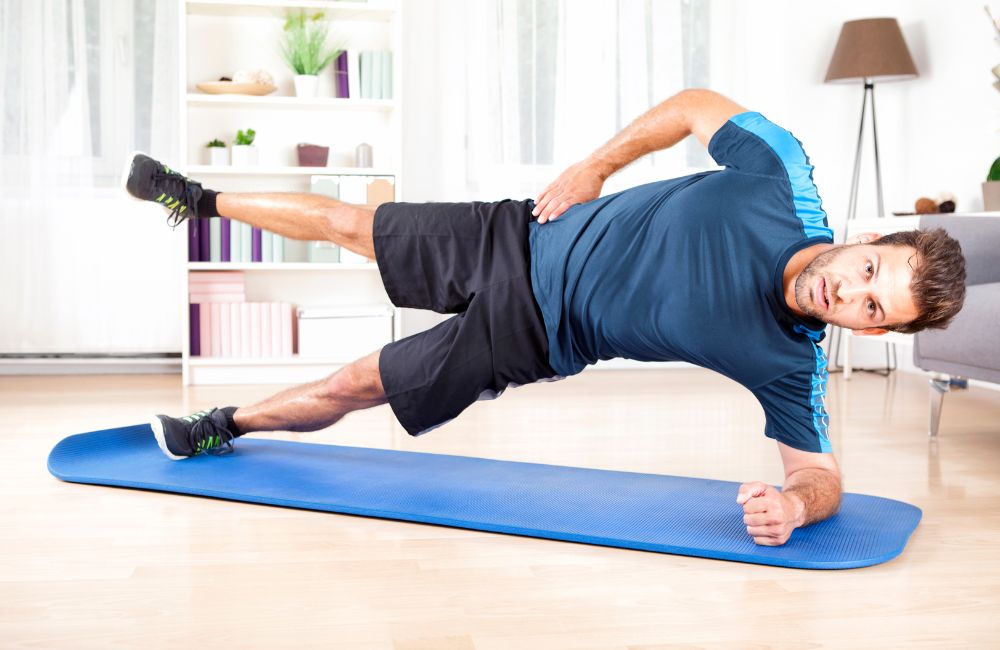
This exercise provides an isometric stimulus for the oblique muscles. Furthermore, this move can improve balance by forcing you to stabilize on a narrow surface: one arm and one foot.
How to Perform
- Lie on your left side, with your right foot stacked on top of your left.
- Next, place your forearm on the floor.
- Lift your hips and trunk off of the ground so that you are holding yourself up, in a straight line, using only your left foot and your left forearm.
- Hold this position for 30 seconds and repeat 4 times on each side per session.
7. Teapots
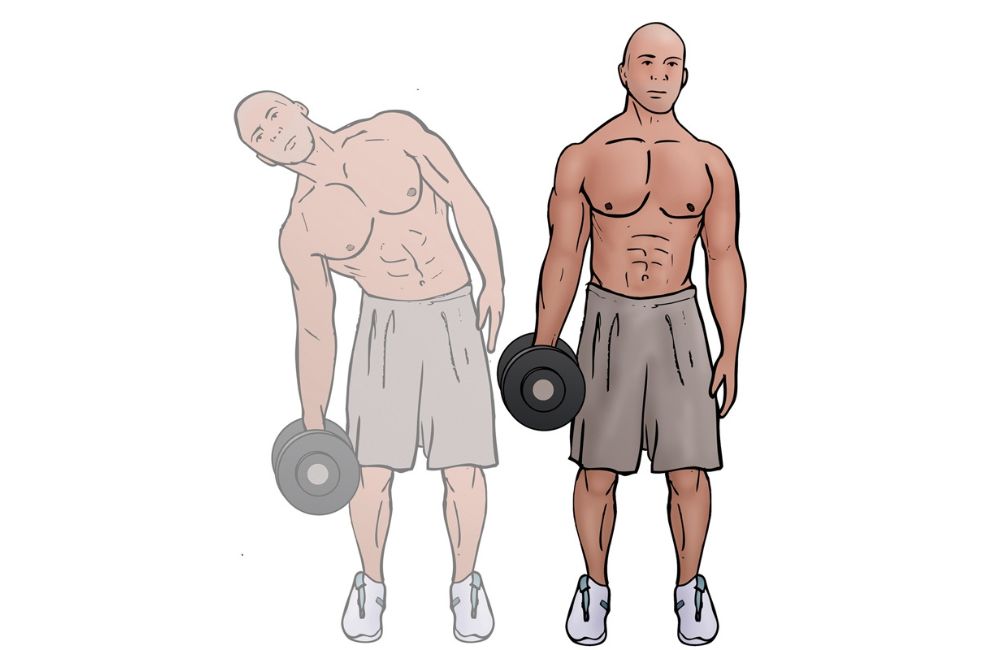
Teapots provide a great stimulus for increasing oblique strength. This move uses an asymmetric setup in order to increase the activation of your core muscles.
How to Perform:
- In standing, hold a weight in your right hand.
- Next, tip toward your right side.
- Then, stand back up straight by tightening your core muscles.
- Complete 10-12 reps per set for 3 sets per session.
8. Back Squats
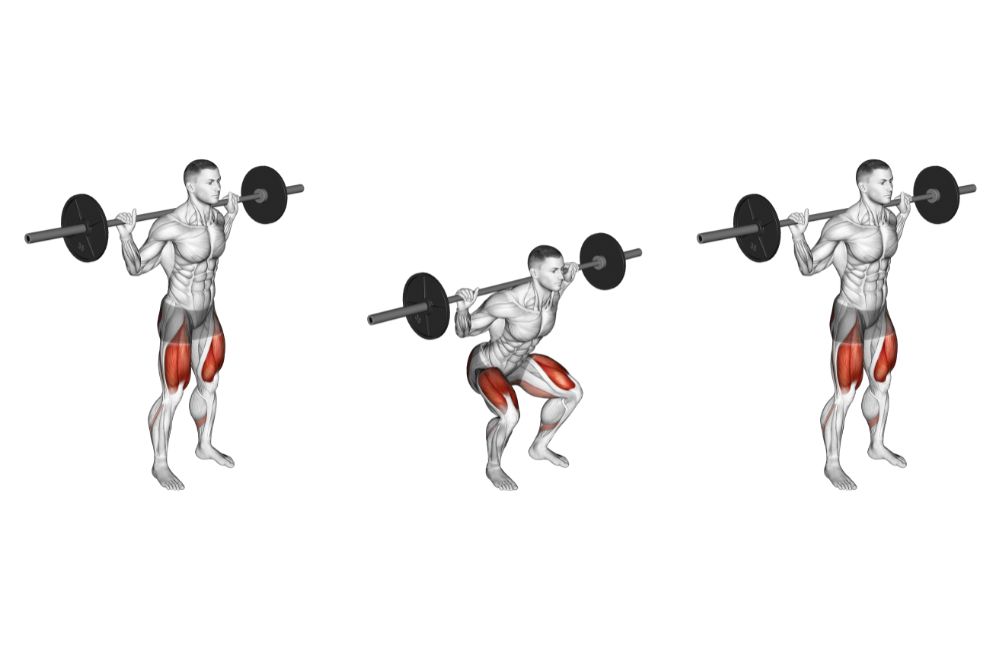
Back squats require a barbell. That being said, you can simply perform bodyweight squats to get a similar result from this exercise.
How to Perform:
- In standing, with your feet about shoulder-width apart, bend your knees and sit backward until your thighs are parallel to the ground.
- Then, straighten out your knees and bring your hips back forward in order to return to standing.
- Complete 10-12 reps per set, for 3 sets per session.
9. Pot Stirrers on Swiss Ball
If you don’t have a swiss ball at home, you should strongly consider investing in one. They are extremely cheap and very versatile. Movements like pot stirrers can completely transform your core workouts!
How to Perform:
- Place your toes on the ground, spaced about hip-width apart.
- At the same time, carefully balance the swiss ball with your forearms and hands.
- Next, perform a clockwise motion, essentially “stirring” as if you were standing over a large pot of soup.
- Perform 10 clockwise rotations, then reverse the motion and complete 10 counterclockwise rotations. Complete 3 sets in each direction per session.
10. Plyo Sit-Ups with Med Ball
Plyometric ab exercises can build both power and strength throughout your core. This move is great for athletes, but can help anyone improve performance and strength!
How to Perform:
- Start by lying on your back, with your knees bent and your feet flat on the floor.
- Your toes should be touching a firm, stable wall.
- Hold a medicine ball in both hands, cradling it to your chest.
- Next, perform an explosive sit-up and throw the ball at the wall as hard as you can.
- Catch the ball and safely fall back into the down phase of the sit-up, completing the rep.
- Perform 10-15 reps per set, for 3 sets per session.
Ab Workouts #11: Battle Ropes: Double Rope Slam
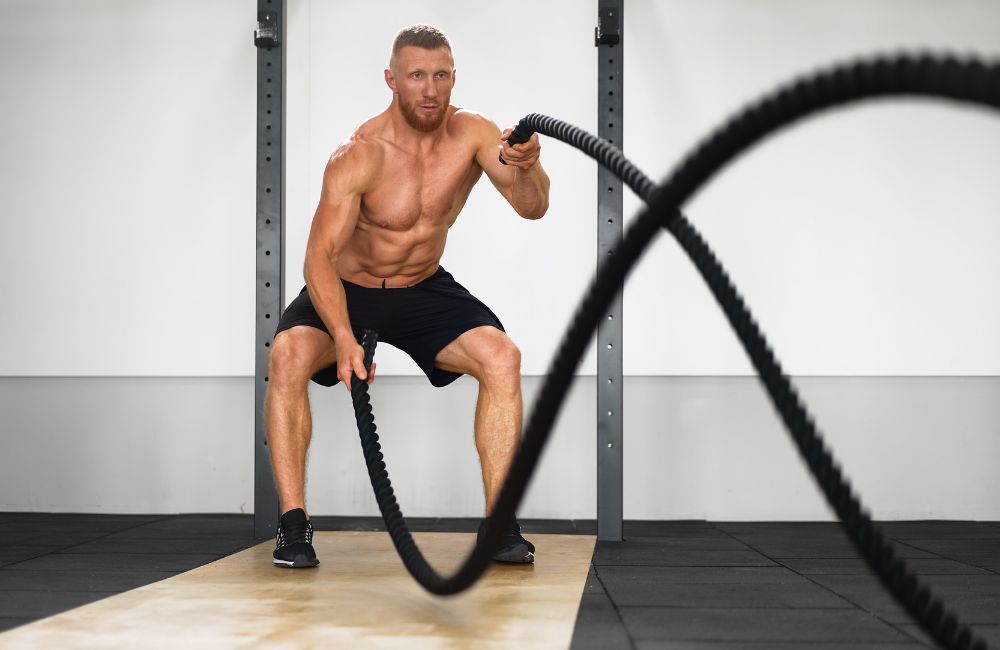
Last but not least, I recommend you include this power exercise in your routine. This will provide both cardiovascular exercise and a core strengthening stimulus all in one, neat movement.
How to Perform
- Grasp the battle rope with both hands.
- Raise the rope up high over your head, then slam it down to the ground as hard as you can.
- Then, immediately raise the rope back up, and repeat the motion described above.
- Complete 10-15 reps for 3 sets per session.
The Bottom Line
Six-pack abs are hard to achieve, but they are not impossible to achieve! With the right diet, commitment to an effective program, and patience, you can develop great abs. Try this routine out and see what you think!
Works Cited
- Oliva-Lozano, J. M., & Muyor, J. M. (2020). Core Muscle Activity During Physical Fitness Exercises: A Systematic Review. International journal of environmental research and public health, 17(12), 4306. https://doi.org/10.3390/ijerph17124306
- Rathore, M., Trivedi, S., Abraham, J., & Sinha, M. B. (2017). Anatomical Correlation of Core Muscle Activation in Different Yogic Postures. International journal of yoga, 10(2), 59–66. https://doi.org/10.4103/0973-6131.205515

